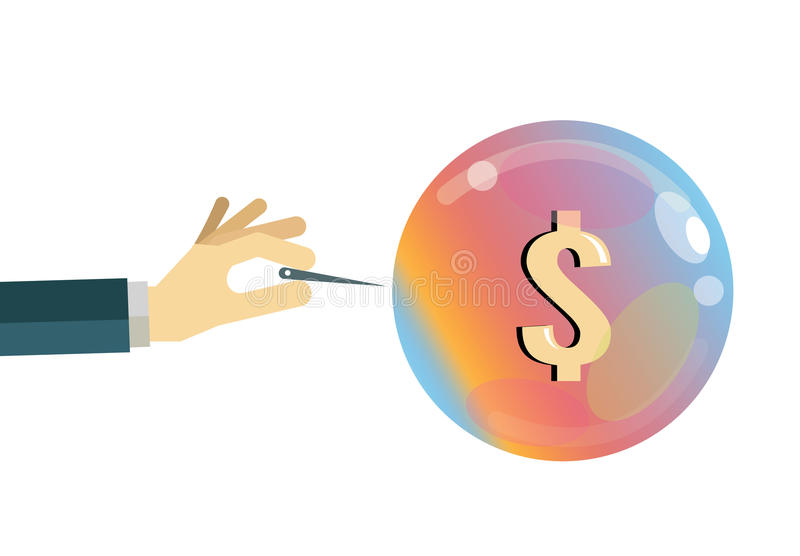
Forex scalping requires you to select currency pairs with higher volatility. These currency pairs will give you greater trading opportunities. If a broker doesn't have an open trading desk, it is important to avoid them. This can lead you to losing your trading account. Moving averages, Bollinger Bands, support and resistance are some of the most common Forex scalping strategies. These can be used to identify trading opportunities. An experienced trader might prefer to do the trade manually.
Trading in the early hours of the day
Forex trading is best done in the early morning and late afternoon. These hours are when the market tends to be at its most volatile so scalpers like this time. This time is ideal for news releases and option expiries, making it highly liquid to trade. This time allows for both manual and automated scalping strategies. Trading during these hours has many benefits.

Focusing on a single currency pair or position at one time
Scalping is best when you are only focusing on one currency pair at a time. It can be difficult to keep your eyes on the charts if you have multiple open positions. You may lose sight of the goal. The fastest movements will occur on major currency pairs with the most liquidity. Avoid scalping large currency pairs. Instead, focus on smaller currency pairs or positions with more liquidity. You can earn more profit by focusing on smaller currency pairs or positions with greater liquidity.
Using RSI to predict future direction of the market
The RSI indicator helps to determine if a stock is oversold. The center line of the indicator equals 50. This indicates that the indicator has gone too far and you should either sell or buy. The RSI is better at predicting the median price than the range. However, RSI is not able to be used alone to predict market direction. Before you make trading decisions, be sure to look at the trend of the asset.
Common mistakes in scalping
One of the most common scalping mistakes is not being able to cut your losses in the market. A single large loss can erase many trades worth of gains. Scalping requires intense concentration. Traders need to be able to see the market clearly and make even the smallest movements. These are some common scalping errors. These are common scalping errors. Learn how to avoid them. Here are three common scalping errors that you should avoid. These are the biggest mistakes made by new scalpers.

Picking a broker who supports scalping
Scalping refers to trading that involves placing many trades quickly and profitably. Scalper can place hundreds of trades a day and each trade could result in a small amount of profit. Some brokers allow scalping. Other brokers prohibit it. Before you start scalping, make sure to read and understand the rules of your broker. Here are some considerations that you should make when selecting a forex brokerage for scalping.
FAQ
How do you choose the right investment company for me?
You want one that has competitive fees, good management, and a broad portfolio. The type of security that is held in your account usually determines the fee. Some companies don't charge fees to hold cash, while others charge a flat annual fee regardless of the amount that you deposit. Some companies charge a percentage from your total assets.
It's also worth checking out their performance record. Poor track records may mean that a company is not suitable for you. Avoid companies with low net assets value (NAV), or very volatile NAVs.
You should also check their investment philosophy. To achieve higher returns, an investment firm should be willing and able to take risks. If they're unwilling to take these risks, they might not be capable of meeting your expectations.
Who can trade on the stock exchange?
The answer is everyone. All people are not equal in this universe. Some people have better skills or knowledge than others. They should be recognized for their efforts.
There are many factors that determine whether someone succeeds, or fails, in trading stocks. If you don’t have the ability to read financial reports, it will be difficult to make decisions.
These reports are not for you unless you know how to interpret them. You need to know what each number means. Also, you need to understand the meaning of each number.
This will allow you to identify trends and patterns in data. This will enable you to make informed decisions about when to purchase and sell shares.
And if you're lucky enough, you might become rich from doing this.
How does the stockmarket work?
A share of stock is a purchase of ownership rights. The company has some rights that a shareholder can exercise. He/she has the right to vote on major resolutions and policies. He/she can demand compensation for damages caused by the company. He/she also has the right to sue the company for breaching a contract.
A company cannot issue shares that are greater than its total assets minus its liabilities. It's called 'capital adequacy.'
Companies with high capital adequacy rates are considered safe. Companies with low ratios of capital adequacy are more risky.
How are shares prices determined?
Investors decide the share price. They are looking to return their investment. They want to make money with the company. So they purchase shares at a set price. If the share price goes up, then the investor makes more profit. The investor loses money if the share prices fall.
An investor's main goal is to make the most money possible. They invest in companies to achieve this goal. It helps them to earn lots of money.
How Do People Lose Money in the Stock Market?
The stock market does not allow you to make money by selling high or buying low. It's a place you lose money by buying and selling high.
The stock market offers a safe place for those willing to take on risk. They want to buy stocks at prices they think are too low and sell them when they think they are too high.
They are hoping to benefit from the market's downs and ups. They might lose everything if they don’t pay attention.
What is a "bond"?
A bond agreement is a contract between two parties that allows money to be transferred for goods or services. Also known as a contract, it is also called a bond agreement.
A bond is normally written on paper and signed by both the parties. This document includes details like the date, amount due, interest rate, and so on.
The bond is used for risks such as the possibility of a business failing or someone breaking a promise.
Many bonds are used in conjunction with mortgages and other types of loans. This means the borrower must repay the loan as well as any interest.
Bonds are also used to raise money for big projects like building roads, bridges, and hospitals.
It becomes due once a bond matures. This means that the bond owner gets the principal amount plus any interest.
If a bond does not get paid back, then the lender loses its money.
How Does Inflation Affect the Stock Market?
Inflation has an impact on the stock market as investors have to spend less dollars each year in order to purchase goods and services. As prices rise, stocks fall. This is why it's important to buy shares at a discount.
What is a Reit?
A real estate investment trust (REIT) is an entity that owns income-producing properties such as apartment buildings, shopping centers, office buildings, hotels, industrial parks, etc. They are publicly traded companies which pay dividends to shareholders rather than corporate taxes.
They are very similar to corporations, except they own property and not produce goods.
Statistics
- Even if you find talent for trading stocks, allocating more than 10% of your portfolio to an individual stock can expose your savings to too much volatility. (nerdwallet.com)
- For instance, an individual or entity that owns 100,000 shares of a company with one million outstanding shares would have a 10% ownership stake. (investopedia.com)
- "If all of your money's in one stock, you could potentially lose 50% of it overnight," Moore says. (nerdwallet.com)
- Ratchet down that 10% if you don't yet have a healthy emergency fund and 10% to 15% of your income funneled into a retirement savings account. (nerdwallet.com)
External Links
How To
How to create a trading plan
A trading plan helps you manage your money effectively. This allows you to see how much money you have and what your goals might be.
Before setting up a trading plan, you should consider what you want to achieve. It may be to earn more, save money, or reduce your spending. You may decide to invest in stocks or bonds if you're trying to save money. If you are earning interest, you might put some in a savings or buy a property. Maybe you'd rather spend less and go on holiday, or buy something nice.
Once you have a clear idea of what you want with your money, it's time to determine how much you need to start. It depends on where you live, and whether or not you have debts. Also, consider how much money you make each month (or week). Income is the sum of all your earnings after taxes.
Next, you'll need to save enough money to cover your expenses. These include rent, bills, food, travel expenses, and everything else that you might need to pay. Your monthly spending includes all these items.
The last thing you need to do is figure out your net disposable income at the end. This is your net discretionary income.
This information will help you make smarter decisions about how you spend your money.
To get started, you can download one on the internet. You can also ask an expert in investing to help you build one.
Here's an example: This simple spreadsheet can be opened in Microsoft Excel.
This graph shows your total income and expenditures so far. Notice that it includes your current bank balance and investment portfolio.
Here's another example. A financial planner has designed this one.
It will allow you to calculate the risk that you are able to afford.
Remember: don't try to predict the future. Instead, put your focus on the present and how you can use it wisely.